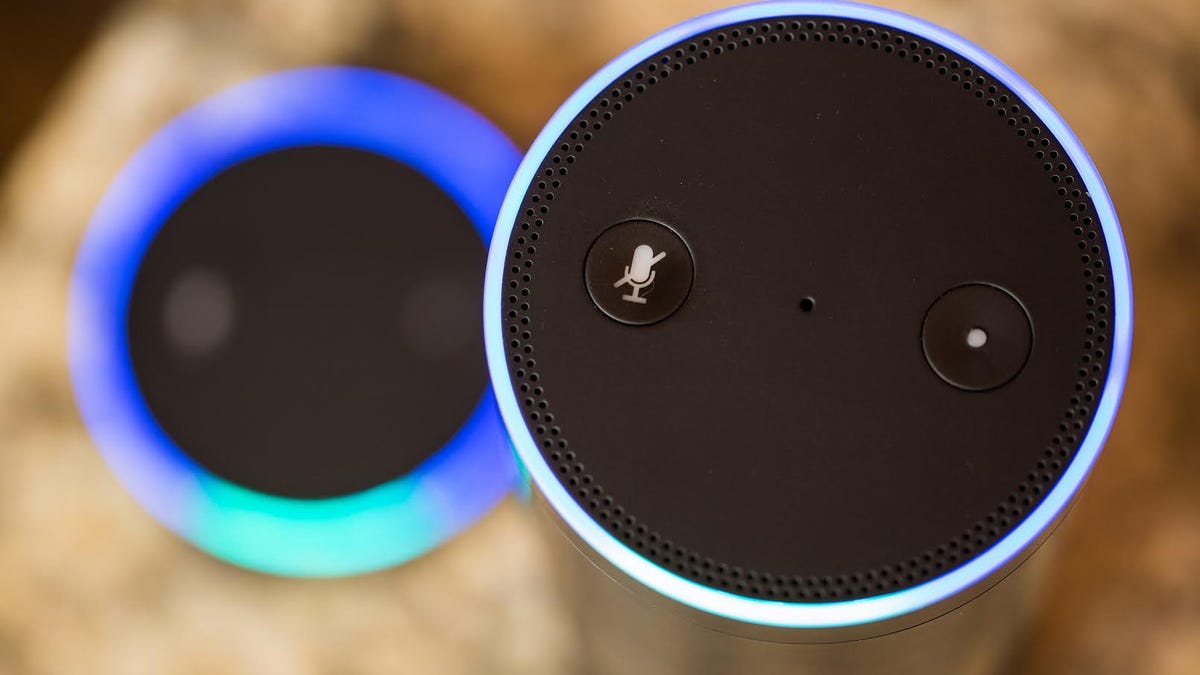Ditched class? Amazon's Alexa will someday tell on you
Hints of how your Echo will get smarter cropped up at an Amazon-backed hackathon last week.

You decide to play hookie with a few high school friends at the end of the day, because who needs to learn trigonometry anyway, right? But when you get home, mom is giving you a death stare.
"Why weren't you at trig class today?" she asks.
Here's the kicker: The one who ratted you out isn't your teacher or a guidance counselor. It was your family's Amazon Echo speaker.
No, the "Billy didn't go to seventh period" feature isn't available on the Echo today, but it may arrive as soon as this September, in time for next school year. That new concept and several others for Alexa, Amazon's artificial intelligent agent inside the Echo, were bandied about during a first-of-its-kind hackathon last week in North Carolina, hosted by Amazon and Automated Insights.
Automated Insights helped the group of companies there use its natural-language writing software, called Wordsmith, to turn their raw data into sentences, paragraphs or, in one case, a voice-activated, personalized attendance report.
Beyond irritating truant students, the hackathon pointed to the early steps of making Alexa capable of natural dialogue with Echo owners and of starting to develop personalities that could vary depending on the user.
Voice assistants are exploding in popularity these days, with Apple, Microsoft, Google and Amazon developing software to allow people to talk to their devices. For now, though, these digital helpers only offer quick, mostly canned responses to basic queries. Using a natural-language engine like Wordsmith, voice assistants like Alexa could offer much more complex and personalized answers. The assistants could even change their sentences slightly each time they are asked the same query so they sound more human.
"It's going to allow you to have a more fluid conversation with Alexa," Robbie Allen, CEO of Automated Insights, said in an interview.
This work could also significantly expand the number of "skills," the term Amazon uses for Alexa commands, with which people can equip their Echos. Right now, more than 7,000 skills are available.
So far, Wordsmith has been used to take facts and numbers and turn them into natural-sounding sentences, like using weekly football stats to generate fantasy sports recaps for Yahoo Sports. A handful of companies tested out feeding Wordsmith their different data points, like stock information from Nasdaq or nearby concerts from TicketMaster, to create natural-sounding sentences that could be written up and transmitted to an Echo user in a matter of seconds.
Schooled by Alexa
In that way, the company PowerSchool -- which provides software for schools to organize attendance, testing and grades -- can take its data and make it immediately accessible to parents through the Echo, instead of on an app or website. That means Alexa may soon tell your folks whether you missed an assignment or failed that science exam.
"The days are gone of going to the mailbox first to hide your report card," said Noel Johnson, PowerSchool's senior director of marketing. PowerSchool plans to roll out these features later this year.
The other companies that took part in the hackathon were the Associated Press, Bankrate, GreatCall, Lincoln Financial, software analytics firms Omnitracs and Tibco, Sling TV, sports data company Stats, and ReverbNation, which offers tools for musicians to manage their upcoming events. Allen said GreatCall, which sells medical-alert wearable devices, developed Alexa commands that could let people check in on their elderly parents, asking Alexa things like, "Where's mom now?" or "How's dad doing today?"
PowerSchool isn't interested in just annoying students. Johnson said the company is working on providing specific data-driven advice to parents on what areas their kids should focus on to improve academic weaknesses.
If some of these ideas sounds a little too intrusive, Allen said people would need to intentionally turn on these kinds of commands and already be providing the needed data to PowerSchool or GreatCall or another company to use them.
"This is just the very beginning of something that's going to be very big," he said, "and I'm excited to see how this plays out over the next couple years."
Tech Enabled: CNET chronicles tech's role in providing new kinds of accessibility.
Batteries Not Included: The CNET team reminds us why tech stuff is cool.

